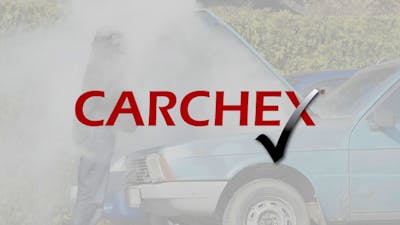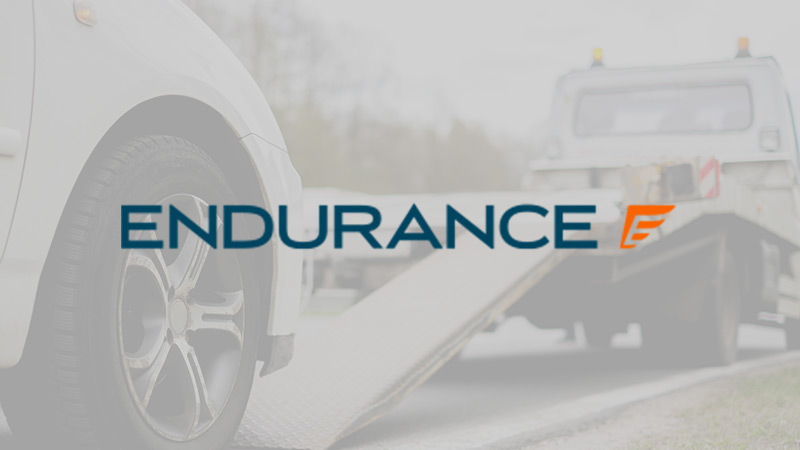How to Find a Reputable Car Warranty Company
If you’ve got a vehicle registered anywhere in the United States of America, you’ve probably gotten a call from an extended warranty company. Probably more than once. Maybe dozens of times. They come by phone, by mail, by email and by carrier pigeon.
Popular Warranty Providers
In addition to these hucksters, there are reputable companies offering you a service which can actually save you thousands of dollars if a covered component were to fail during the extended warranty period.
So how do you find the good ones?
There are a number of traits to look for that make up a decent vehicle warranty provider, and there’s research you can do to determine whether these companies are on the up-and-up. We’ll take you through the things you should be looking for.
How to Find a Car Warranty That Provides Good Protection
Covered Components
The first thing you should be considering in choosing one company over another, and one plan within that company over another, is "What does this plan actually cover?" Extended warranties and service contracts offered by the very same company can offer different tiers of protection that cover fewer items at a lower price, or add a hefty deductible if you’ve chosen the longest term of warranty.
In almost every plan we looked at, the less expensive option either has a higher deductible, covers fewer items, or both.
The basic breakdown in types of plans are "bumper-to-bumper" plans that cover everything with the exception of regular wear items like tires, brakes, shocks and wiper blades, and "stated component" plans that cover –- as the description suggests – stated components. For example, a plan like Endurance’s Supreme plan covers you bumper-to-bumper. But its Secure plan only covers major components like the engine, drive axles, transfer case, transmission and turbo or supercharger.
Term Flexibility
Most reputable service plans offer some level of flexibility in the term of protection. Say you buy a car and typically turn it in when it’s about six years old. A plan that offers coverage for ten years and 120,000 miles isn’t really what you’re looking for. You want to choose a plan that will offer the maximum available coverage to get you to six years, after the manufacturer’s original vehicle warranty has expired.
Transferability
What if you’ve purchased an eight-year, unlimited mileage service plan and you decide to buy a new car after five years? A plan that offers a transfer of ownership for a nominal paperwork fee is not only protection for the next buyer, but it’s a selling point if you decide to sell the car privately.
Towing, Roadside Assistance and Rental
Do you pay for a towing and roadside assistance plan with an auto club? If you select the right vehicle service plan, you can save that annual fee because towing and roadside assistance are part of the service plan. If you’ve locked your keys in your car, run out of gas or had a flat tire, the service plan will send help, and if your vehicle needs to be towed, they’ll tow it to the nearest authorized dealership, getting you safely off the road.
It’s also a good idea to select a plan that offers rental assistance. Look for a plan that covers the first day rental allowance, and then provides additional days of rental allowance should your vehicle need to be at the shop for an extended period.
Trip Interruption Protection
A breakdown on the way to work is bad enough. What if your vehicle breaks down on your vacation? Look for a vehicle service plan that offers Trip Interruption Protection that can pay for up to $1,000 worth of lodging, meals and transportation expenses should your vehicle break down when you’re 100 miles or more from home. All of these items should be a part of your overall service plan, and can pay for themselves in one mechanical breakdown.
Fast Extended Warranty Rate Quotes
Call now 1-855-534-1173 or get an online quote

Extended Warranty Scams and How to Avoid Them
Pressure to Purchase
If you’ve gotten pitches in the mail or by phone, usually there’s some rabid sense of urgency attached. If you don’t sign on the dotted line today, you’ll NEVER BE OFFERED THIS COVERAGE AGAIN. Of course, if you’ve been around for a little while, you know that they’ll continue to offer that coverage long after you’ve sold the car to the next owner, and they’ve passed it on to their grandkids. A lot of these companies will cover anything at any time, and those are generally the extended warranty companies you want to avoid.
Reputable companies that offer this coverage realize that it’s a fairly substantial chunk of change, especially when you’re staring down the barrel of a brand new monthly car payment. That’s why on a new, or a certified pre-owned, or even a traditional used car, you can usually decide on extending the original warranty’s protection up until the point the original vehicle warranty expires.
Scary "DEMAND" Letters
Companies that send out these letters are usually preying upon older folks who often have trouble discerning the difference between important communications and junk mail. A typical letter might come from an official-sounding "Department of Automobile Records." The red "DEMAND"-style letter had all kinds of frightening language like "Our records indicate you have received multiple notices..." and "you will be at risk of being financially liable for any and all repairs." Only no such "department" exists, and the "Department of Automobile Records" isn’t a company at all.
"Invoices"
A lot of vehicle warranty companies use mailers that look an awful lot like invoices. They say "This is not an invoice" somewhere, usually in six point type on the second page somewhere. In bold, large print, though, is the money you’d "owe" if you actually had some particularly nasty component fail. One of the letters we looked at from a reader contained a fairly official-looking "invoice" for nearly $13,000. The elderly woman who shared it with us had no idea how she was going to come up with the money to pay for it, not realizing that it wasn’t an invoice at all, but a pitch to get her to buy a service.
Read more on extended warranty scams and how to stop them here.
How to Stop Car Warranty Companies From Calling
The short answer? It’s largely impossible. These companies purchase MASSIVE amounts of data from car dealers, various state registries of motor vehicles, quick lube services, and any other kind of company that has anything to do with automobiles. It’s perfectly legal, and they’re going to annoy you until the end of time. There are a handful of things you can do to avoid getting this unending barrage of advertisement, though:
By Phone
If you have a landline, you can cover yourself with the basics, like adding your phone number to the national Do Not Call registry (www.donotcall.gov) but that’s only mildly effective. Most people have caller ID at this point. If you don’t recognize the number, let it go to voicemail. We haven’t gotten many extended warranty pitches by cell phone at this point, but chances are, that will change. Most phone services will allow you to block calls from numbers you don’t recognize, which is a pretty handy service for avoiding these companies.
Read more about how to stop extended warranty phone calls here.
By Mail
The best thing to do is be vigilant about understanding the difference between junk mail and real mail, and you can tell immediately what it is by the postage. If it’s a bill, it’s going to come via first class mail, personalized to your address, with postage on the envelope that says "First Class Mail." This is important stuff you should open right away.
Things like catalogs, coupons, ads and junk mail from extended warranty companies come via Standard Mail. In place of a stamp or metered postage on the envelope, it will say something like "PRESORT STANDARD MAIL" and you’re safe to chuck all of this stuff right in the recycling bin.
Do Your Research
While there are a lot of bad marketing tactics and pesky sales pitches out there in the extended warranty industry, there are also a lot of good, solid auto warranty companies that provide great coverage and consumer-focused offerings. It is important to know the difference between the good apples and the bad ones.
Make certain to ask questions. Check internet reviews. Check the Better Business Bureau and chat rooms. Do your due diligence and shop around for the right coverage and the right price that works for you. Check out the Car Talk warranties section for individual company reviews and Golden Wrench Awards in the extended warranties industry. And finally, check with our Car Talk Community for personal user experiences.
Our Methodology For Best Warranty Providers
Car Talk has spent the last year doing a deep dive into the warranties industry for the benefit of our readership and long-time listeners. Our process for deciding on the best warranty companies for the year was exceptionally thorough, involving in-depth research and our unique secret shopper initiative. We compiled over 50 data points across all reviewed companies to refine and inform our selection process. Car Talk reviewed the following important criteria for each company:
Consumer Satisfaction: Cross referencing multiple trusted resources to pull our fair and balanced customer reviews.
Cost: Utilizing our secret shopper initiative, we got comparable quotes across all companies so we can validly compare pricing.
Coverage and Offerings: Our research team delved into the coverage and offerings for each company, comparing what is available, including extras and discounts.
Official Ratings: We consulted a wide range of verified review sites to extrapolate a ratings score for each.







